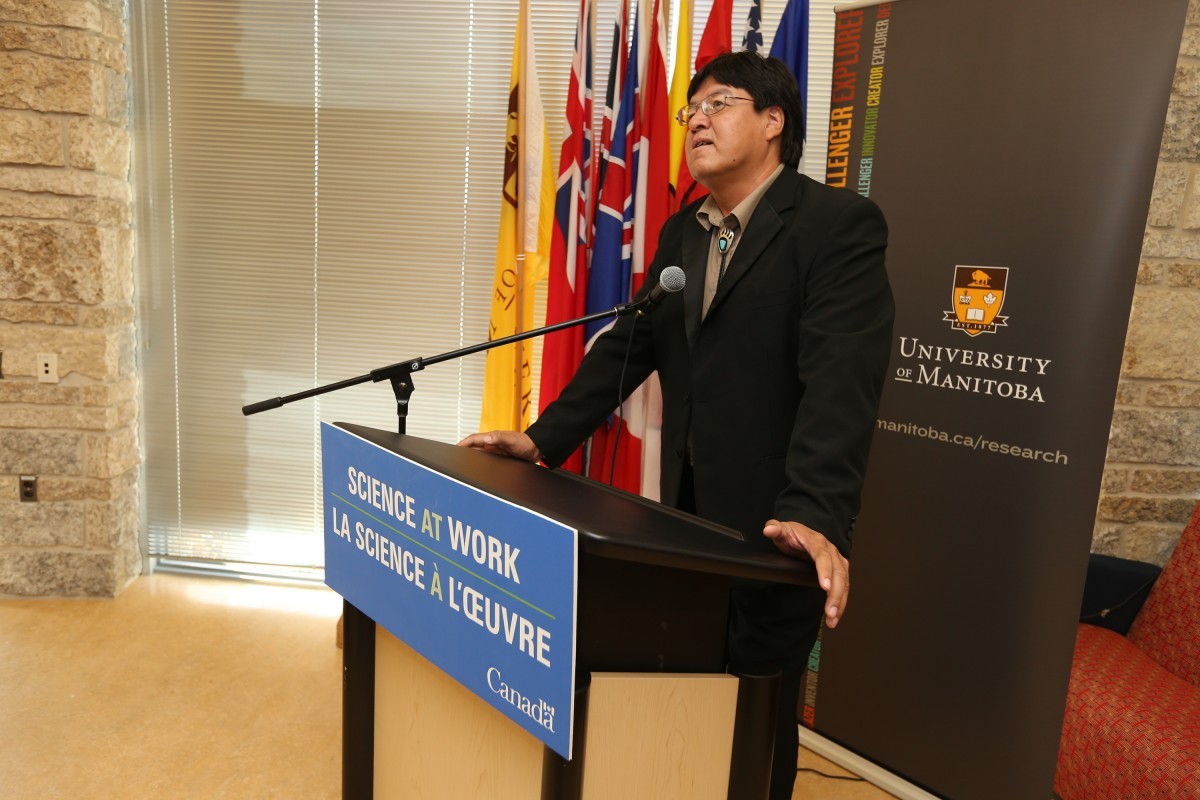
Finding solutions together: Partnerships for safe drinking water
WHAT: The CREATE H2O program is designed to address research science and training gaps that are preventing culturally appropriate investments in water and sanitation in First Nations.
HOW IT STARTED: It launched in 2013 as the first science-engineering research training program in Canada to combine technical water and wastewater management training with Indigenous theory, law and methodological skills training. The initiative fosters respectful relationships between First Nations and researchers, allowing for meaningful collaboration. This enables our researchers to contribute to a growing intellectual movement of decolonizing research and methodologies within the academy.
HOW IT WORKS: The program brings together a team of 37 researchers in the sciences, engineering and law from the University of Manitoba, Trent University and University College of the North. CREATE H20 involves undergraduate and graduate students, and several Manitoba and Ontario First nation communities. The program also engages elementary and high school students in some communities and gives youth an opportunity to participate in university research in water sciences.
IN HER OWN WORDS: “In 2010, I was a nursing student when the Winnipeg Free Press broadcast the video series No Running Water,” explains H20 CREATE program coordinator Pepper Pritty. “I was horrified to learn that thousands of First Nations people were living without any running water and many didn’t have access to safe drinking water. As a First Nations woman, and soon to be nurse, I was well aware of other issues related to lack of access to health services but at this stage of my career, I had not understood the breadth of inequities that First Nations people were experiencing.” During the next several years, Pritty raised awareness of these issues. She co-founded the Water is a Right Campaign with the University of Manitoba Students’ Union; incorporated the Free Press video in presentations and workshops addressing inequities that impact health in First Nations communities; participated in water symposiums and conferences; and created a program that worked with youth to build the capacity of communities to manage their own water monitoring programs. “Upon graduation from the nursing program, I became a northern nurse working on the front lines with people to advocate for improvements,” Pritty says. “I also enrolled in a master’s program that works with several remote First Nations communities on water quality research from a health perspective, including one of the communities that was part of the original video that inspired me to get involved in the first place.”
FUNDERS AND SUPPORTERS: The Natural Sciences and Engineering Research Council of Canada (NSERC), the University of Manitoba, Trent University and Neegan Burnside with in-kind support provided by the University of Manitoba, Trent University, University College of the North, Assembly of First Nations, Assembly of Manitoba Chiefs, Manitoba Keewatinowi Okimakanak, Centre for Indigenous Environmental Resources, Manitoba First Nations Water and Wastewater Instruction Program, Ontario First Nations Technical Services Corporation, Verna J. Kirkness Education Foundation, Public Interest Law Centre, International Institute for Sustainable Development, Neegan Burnside, Napier-Reid and Friends of Engineering Manitoba
LEARN MORE
This new online initiative celebrates U of M collaborations with individuals and groups in Manitoba and across the globe that make an impact. We invite faculty, students and staff to share their stories at umanitoba.ca/community and help us further ‘dot’ the map of community engagement.






